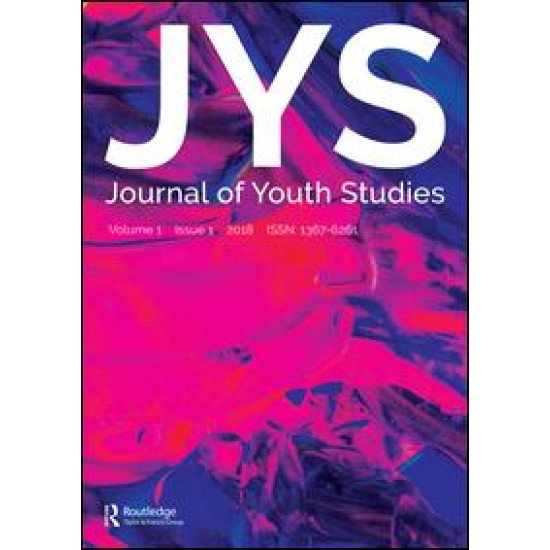
5-Year Impact Factor: 1.800
Ranking: 26/98 (Social Sciences, Interdisciplinary)
©2018 Clarivate Analytics, 2018 release of the Journal Citation Reports®
Journal of Youth Studies is an international scholarly journal devoted to the theoretical and empirical understanding of young people’s experiences and life contexts. Rapidly changing socio-economic circumstances have important implications for young people: new opportunities have been created but inequality and marginalisation have increased and taken new forms. Launched in 1998, the Journal of Youth Studies has established itself as the leading multidisciplinary journal for academics who are interested in youth and young adulthood.
As the leading journal in the field, the Journal of Youth Studies brings together social scientists from all regions of the world and working in a range of disciplines. These include sociology, education, social policy, cultural studies, political science, economics, anthropology, criminology and social geography. Ours is not a journal of adolescent psychology but we do accept papers that take a critical psychological perspective.
The papers we publish investigate young people’s lives in a range of contexts (such as education, the family, the labour market) and in respect of numerous research themes (such as sub-culture, identity, politics, citizenship, consumption, leisure, media, crime etc.) The Journal does not wish to publish papers that incidentally have used young people as the research sample or that repeat dated, narrow or normative approaches to understanding young people’s lives. Although the scope cannot be defined chronologically, the core interest of the Journal is on young people in their teens and twenties.
We are open to all methodological approaches. As well as empirically based, theoretically informed papers we also welcome contributions that are primarily conceptual, particularly if they add to contemporary intellectual debates in the field. The Journal of Youth Studies publishes papers that grapple with questions of youth policy and practice but these must go beyond programme reports and evaluations and have clear value for an international readership. As well as analyses of the changing situations, experiences and opportunities of young people, the Journal encourages papers that take a critical perspective on the way that social, economic and political processes and institutions shape the meaning of, and narratives about, youth.

















